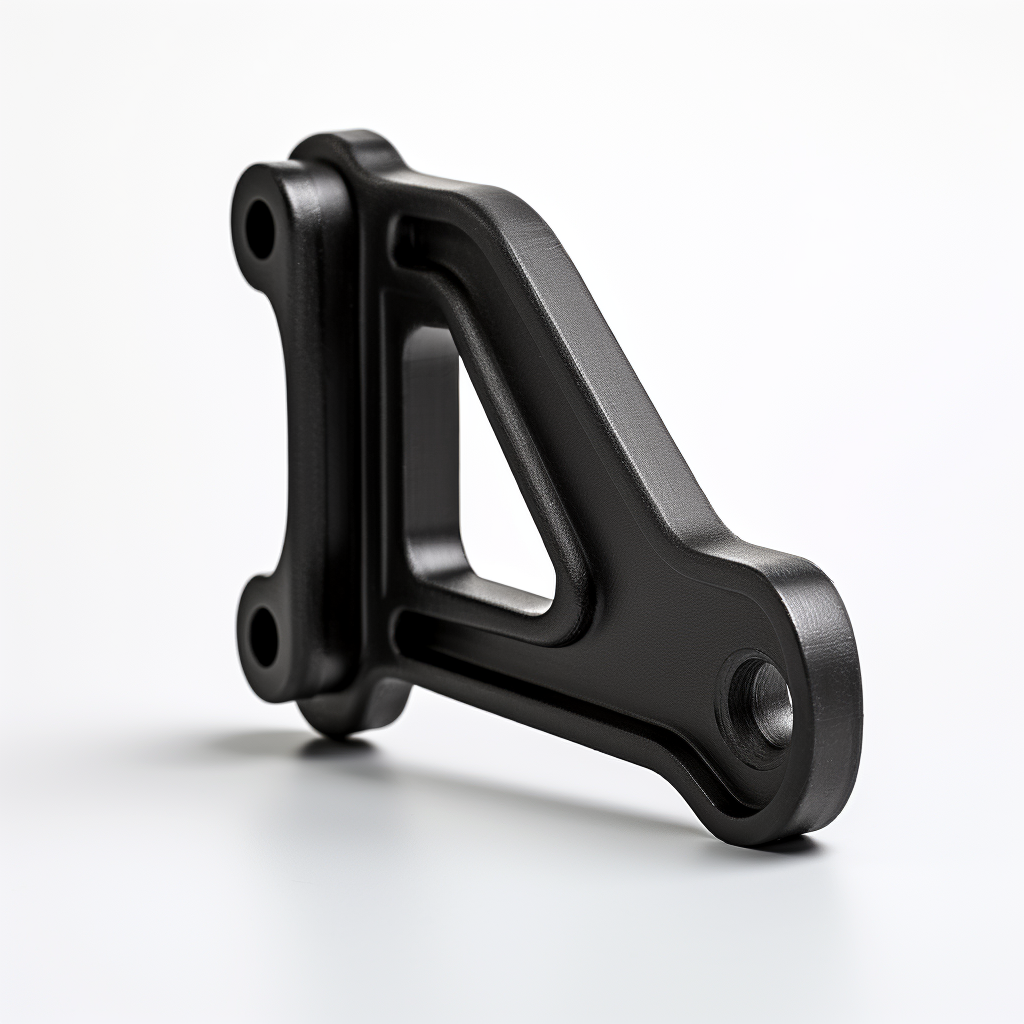
PC/ASA Plastic (Polycarbonate ASA Blend) Selection Guide
PC/ASA (Polycarbonate/Acrylonitrile Styrene Acrylate) is a blend of two different thermoplastic polymers: polycarbonate (PC) and acrylonitrile styrene acrylate (ASA). This combination offers a unique set of properties, making PC/ASA plastic suitable for various industrial applications. In this web page, we will explore the different types of PC/ASA, its numerous advantages and disadvantages, and the diverse industrial applications where PC/ASA plays a significant role.
PC/ASA (Polycarbonate/Acrylonitrile Styrene Acrylate) rapid manufacturing, & custom molded parts are available now!
Check with one of Canyon’s helpful product engineers for an expert material and manufacturing recommendation.
Common names include: PC/ASA (Polycarbonate/Acrylonitrile Styrene Acrylate Blend), Trade Names: Bayblend®, Geloy®, Cycoloy®, Luran® S, Terlux®, Pulse®.

Advantages
- Weather Resistance: PC/ASA has excellent weather resistance, including resistance to UV radiation, making it suitable for outdoor applications without significant degradation or color fading.
- Impact Resistance: The blend of PC and ASA results in high impact resistance, making it ideal for applications requiring durability and toughness.
- Chemical Resistance: PC/ASA exhibits good chemical resistance, ensuring its stability in various environments.
- Dimensional Stability: It offers good dimensional stability and retains its shape under varying temperature conditions.
- Aesthetic Appeal: PC/ASA can be easily molded and retains its color and appearance over time, making it suitable for aesthetically demanding applications.
- Ease of Processing: PC/ASA is easy to process through injection molding, extrusion, and other common plastic manufacturing techniques.
Disadvantages
- Cost: PC/ASA can be more expensive compared to some other thermoplastics, which can impact its use in cost-sensitive applications.
- Not Suitable for High-Temperature Applications: PC/ASA has a lower heat resistance compared to some engineering plastics, limiting its use in high-temperature environments.
- Limited Mechanical Properties: While it has good impact resistance, PC/ASA may not have the same mechanical strength as some other plastics, such as pure polycarbonate.
Common Applications of PC/ASA
- Automotive: PC/ASA is used in automotive exterior components such as grilles, bumpers, side mirrors, and roof racks due to its weather resistance and impact resistance.
- Outdoor and Recreational Equipment: It is used in outdoor equipment like garden furniture, playground equipment, and recreational vehicles due to its ability to withstand harsh weather conditions.
- Building and Construction: PC/ASA is employed in construction materials such as roof tiles, siding, and window profiles due to its UV resistance and durability.
- Electrical Enclosures: It is used for electrical enclosures and outdoor electrical components that require weather resistance and impact protection.
- Consumer Goods: PC/ASA is used for various consumer products such as outdoor lighting fixtures, sports equipment, and garden tools due to its aesthetic appeal and durability.
- Agriculture: It is used in agricultural equipment and machinery parts due to its resistance to exposure to sunlight, rain, and chemicals.
- Marine Industry: PC/ASA can be used for marine equipment and components due to its ability to withstand saltwater and UV exposure.
- Appliances: It is used in outdoor appliances like barbecues and refrigerators due to its resistance to weathering and impact.
Please consult a Canyon Components Engineer about your specific application and we will use our decades of experience to formulate a solution that fits your need.
Types of PC/ASA
PC/ASA can come in different variations, depending on its composition and intended use. Some common types of PC/ASA include the following.
Canyon Components strives to meet all customer service requests. Feel free to contact Canyon Components engineering and let our knowledgeable staff help you design the perfect part for your needs.
General Purpose PC/ASA
This type combines the superior strength and heat resistance of polycarbonate with the UV stability and weatherability of ASA (Acrylonitrile Styrene Acrylate). It's ideal for outdoor applications, like automotive exteriors and signage, where long-term color stability and durability are crucial.
Glass Fiber Reinforced PC/ASA
Enhanced with glass fibers, this variant offers increased stiffness and strength, making it suitable for structural components that require extra rigidity and dimensional stability. It's often used in demanding industrial applications, including automotive parts and heavy-duty equipment.
Flame Retardant PC/ASA
Specifically designed for applications requiring fire safety, this type includes flame retardant additives. It maintains the toughness of PC and the weather resistance of ASA, making it a choice for electrical housings, electronic components, and applications in the public transportation sector.
Impact Modified PC/ASA
This version is tailored for high impact resistance, absorbing shocks and impacts without cracking. It's particularly useful in protective gear, sports equipment, and automotive parts that are prone to impact.
UV Stabilized PC/ASA
Offering enhanced resistance to UV radiation, this type prevents yellowing and degradation due to sunlight exposure. It’s suitable for outdoor applications like garden furniture, automotive exteriors, and window profiles, where maintaining aesthetic appearance over time is essential.
High Flow PC/ASA
Designed for ease of processing, this type has a lower viscosity, allowing for smoother flow during injection molding. It’s ideal for producing intricate parts and components with fine details, commonly used in consumer electronics, intricate automotive components, and detailed housings.
Please consult a Canyon Components Engineer about your specific application and we will use our decades of experience to formulate a solution that fits your need.
Manufacturing Options for PC/ASA
PC/ASA parts can be manufactured using several methods, each suitable for different applications and part complexities.
Each of these methods has its own advantages, limitations, and cost implications. The choice of manufacturing technique usually depends on factors like the complexity of the design, required precision, material properties, and production volume.
Canyon Components strives to meet all customer service requests. Feel free to contact Canyon Components engineering and let our knowledgeable staff help you design the perfect part for your needs.
Back to Plastics Hub

Get A Quote Now!

Groove Design References
Learn More
Coatings, Packaging, & Other Services
Learn More
Custom Parts & Custom O-rings
Learn More
